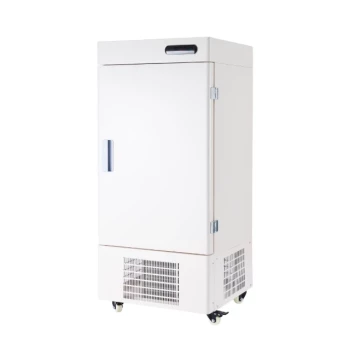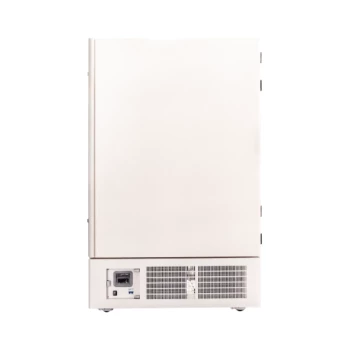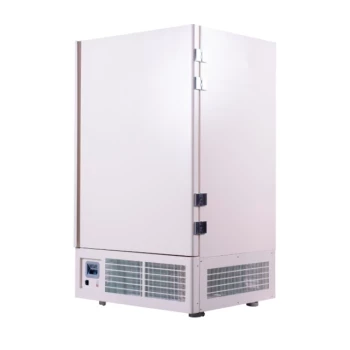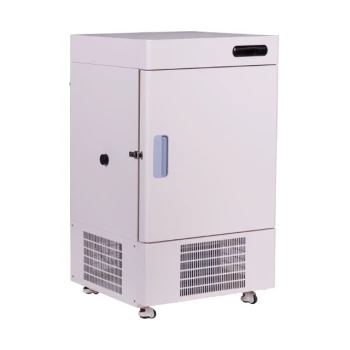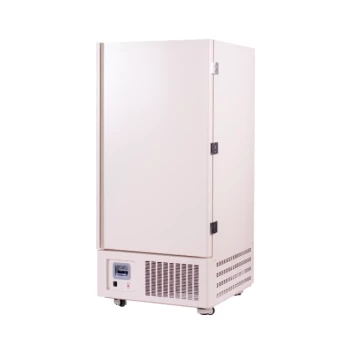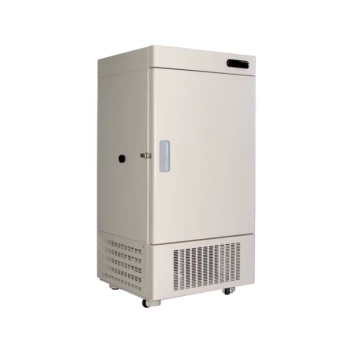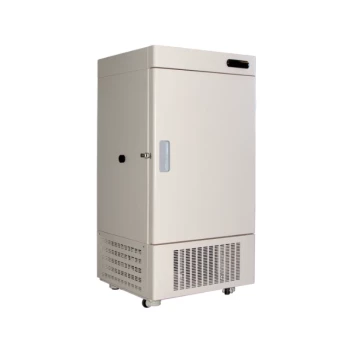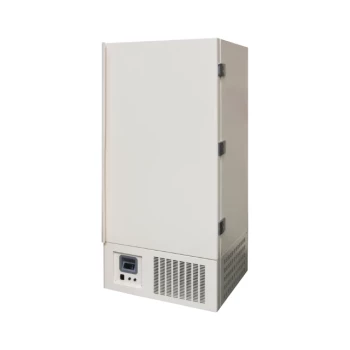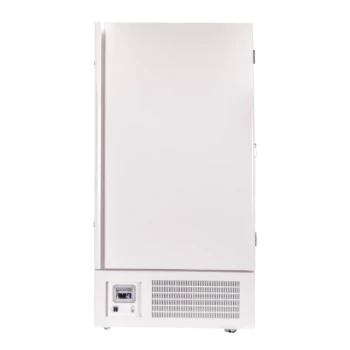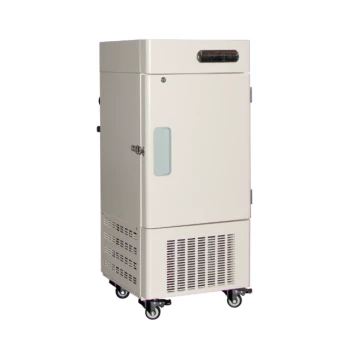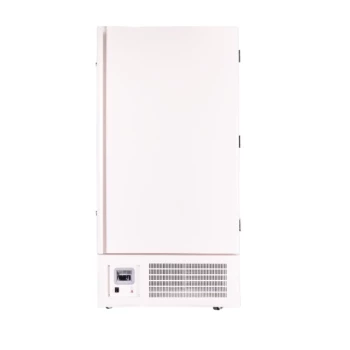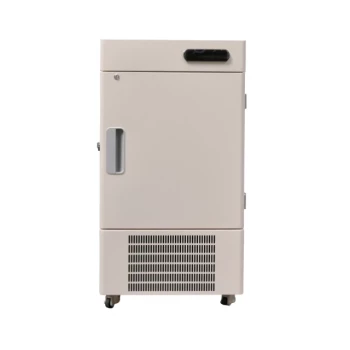In short, ultra-low temperature (ULT) freezers are indispensable tools in any field requiring the long-term preservation of sensitive biological materials. They are most commonly used in medical, research, and scientific settings such as biomedical research institutes, pharmaceutical companies, hospitals, and blood banks. These specialized freezers are critical for applications in genetics, molecular biology, and biotechnology where the integrity of samples like DNA, RNA, vaccines, and cell lines must be maintained over many years.
The core function of an ultra-low temperature freezer is to create a state of suspended animation for biological samples. By driving temperatures down to -86°C, these freezers effectively halt the chemical and enzymatic processes that cause degradation, thereby preserving the viability and integrity of irreplaceable materials for future analysis, research, or therapeutic use.
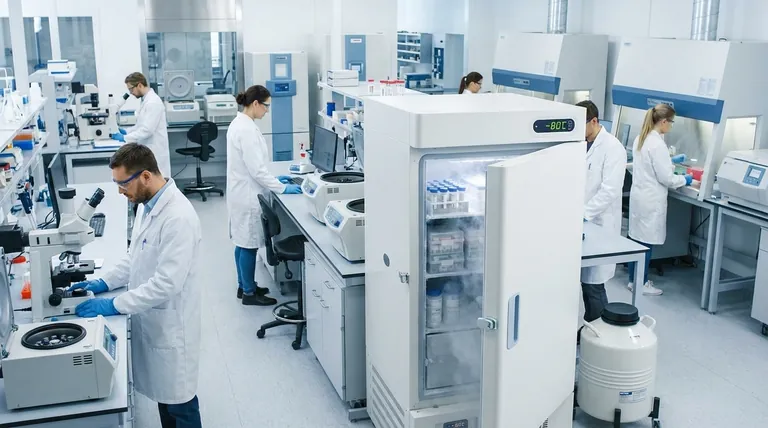
The Core Principle: Halting Biological Decay
Why Extreme Cold is Necessary
Standard freezers slow down biological decay, but they don't stop it entirely. Over time, residual enzymatic activity can still degrade complex molecules like RNA, proteins, and even DNA.
ULT freezers operate at temperatures so low (typically -40°C to -86°C) that they effectively freeze molecular motion. This cryo-preservation brings biological and chemical activity to a virtual standstill.
The Importance of Sample Integrity
For scientific and medical work, a sample's integrity is non-negotiable. Degraded DNA can invalidate genetic research, compromised cell lines can ruin a drug discovery experiment, and an unstable vaccine loses its efficacy.
ULT freezers ensure that a sample analyzed ten years from now is, for all practical purposes, identical to the day it was stored. This stability is the foundation of reproducible research and reliable medical treatments.
Key Applications Across Major Fields
Biomedical and Pharmaceutical Research
This is the largest area of use. Researchers in genetics, molecular biology, and drug discovery rely on ULT freezers to store vast libraries of biological assets.
These include crucial materials like cell lines, tissues, proteins, enzymes, and nucleic acids (DNA/RNA). Preserving these samples allows for longitudinal studies and the re-testing of hypotheses years after the initial collection.
Clinical and Medical Settings
Hospitals, blood banks, and epidemic prevention services use ULT freezers for high-value storage. This includes preserving blood, plasma, tissues, and patient-derived biological samples.
More recently, they became well-known for storing certain vaccines, such as the initial mRNA COVID-19 vaccines, which require extreme cold to remain stable and effective.
Forensics and Environmental Science
Forensic laboratories use ULT freezers for the long-term archival of evidence. Samples like autopsy materials, DNA evidence, and tissues can be preserved for decades, ensuring they are available for future review or testing with new technologies.
Similarly, environmental researchers store plant samples and insect artifacts to study ecological changes over time.
Understanding the Practical Considerations
Upright vs. Chest Freezers
ULT freezers are generally available in two configurations, each serving a different purpose.
Upright freezers offer easier organization and quick access to frequently used samples, making them common in active research labs where space is often limited.
Chest freezers are typically used for long-term, high-volume archiving. They are more energy-efficient and maintain temperature more effectively during brief openings, but accessing specific samples can be more difficult.
The Risk of Failure
The contents of a ULT freezer can be irreplaceable, representing years of work or priceless patient samples. A mechanical failure can be catastrophic.
For this reason, these units are mission-critical equipment, often equipped with redundant cooling systems, backup power, and sophisticated temperature monitoring and alarm systems.
Making the Right Choice for Your Goal
The specific application dictates the priority when selecting or utilizing a ULT freezer.
- If your primary focus is active research with frequent sample access: An upright model with excellent organizational racking is essential to maintain efficiency and protect other samples from temperature fluctuations.
- If your primary focus is long-term biobanking or evidence archival: A high-efficiency chest freezer offers the most stable environment for samples that will remain untouched for years.
- If your primary focus is storing high-value therapeutics like vaccines: The top priority must be temperature stability, alarm systems, and reliability to ensure patient safety and product efficacy.
Ultimately, these freezers are the silent guardians of modern biological science, safeguarding the materials that drive discovery and improve human health.
Summary Table:
| Field | Primary Applications | Common Samples Stored |
|---|---|---|
| Biomedical & Pharmaceutical Research | Drug discovery, genetics, molecular biology | Cell lines, DNA/RNA, proteins, enzymes |
| Clinical & Medical Settings | Vaccine storage, blood banking, patient sample archiving | Vaccines, blood, plasma, tissues |
| Forensics & Environmental Science | Evidence archival, ecological studies | DNA evidence, plant samples, insect artifacts |
Safeguard your critical biological samples with the right ultra-low temperature freezer. At KINTEK, we specialize in providing reliable lab equipment and consumables tailored to the needs of research, clinical, and biobanking facilities. Whether you need an upright freezer for frequent access or a chest model for long-term archiving, our solutions ensure temperature stability and sample integrity. Don't risk your invaluable work—contact us today to find the perfect ULT freezer for your lab's requirements!
Visual Guide
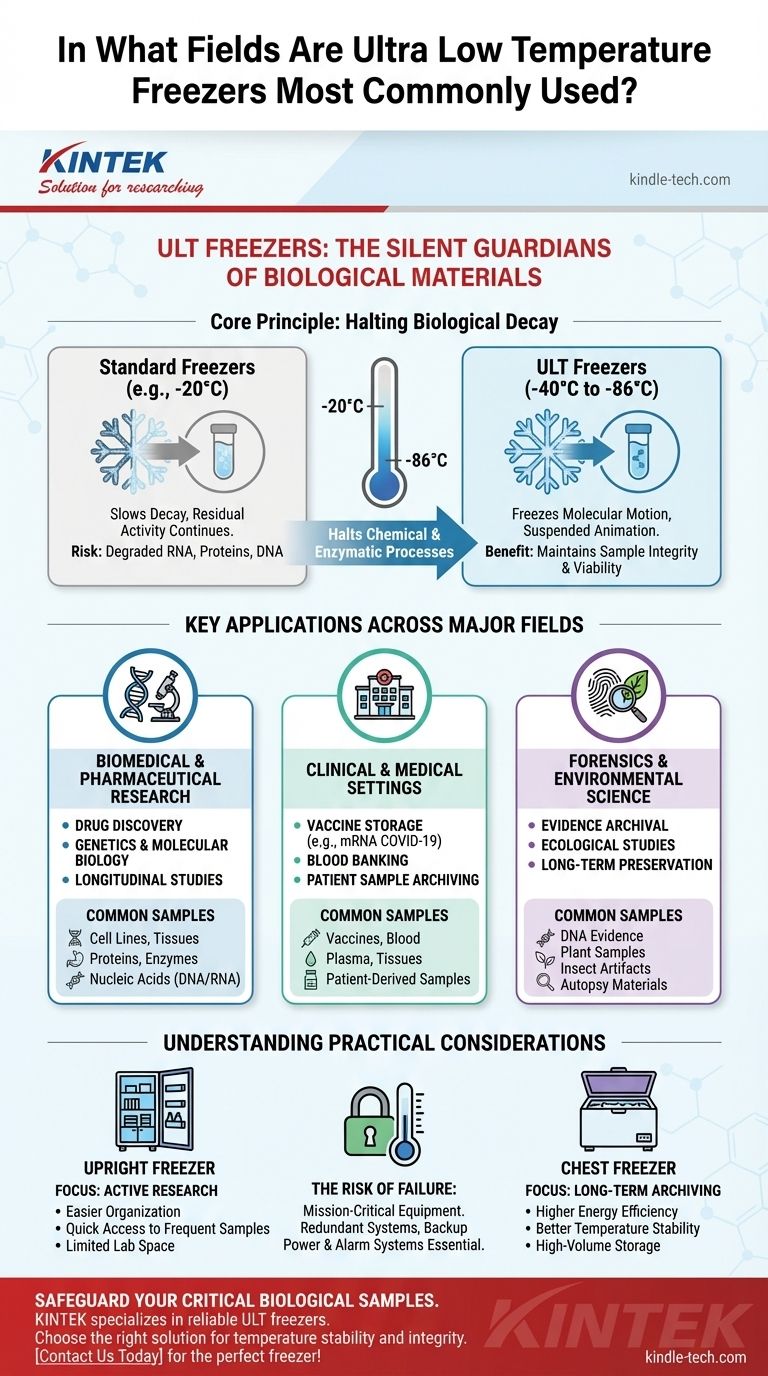
Related Products
- 158L Precision Vertical Ultra Low Freezer for Laboratory Applications
- 938L Vertical Ultra Low Temperature Freezer for Advanced Laboratory Storage
- 808L Precision Laboratory Vertical Ultra Low Temperature Freezer
- 108L Vertical Ultra Low Temperature ULT Freezer
- 408L Advanced Vertical Laboratory Ultra Low Temperature Freezer for Critical Research Material Preservation
People Also Ask
- What types of materials are commonly stored in ultra low temperature freezers? Preserving Cells, Vaccines & Biomolecules
- Why are ULT freezers considered vital equipment in labs? Ensuring Uncompromised Sample Integrity for Critical Research
- What is convection-based cooling in ultra-low temperature freezers? Achieve Superior Temperature Stability for Your Samples
- What is the purpose of ultra-low temperature (ULT) freezers? Preserve Critical Biological Samples
- How is temperature controlled in ultra low temperature freezers? A Guide to Stable -80°C Storage
